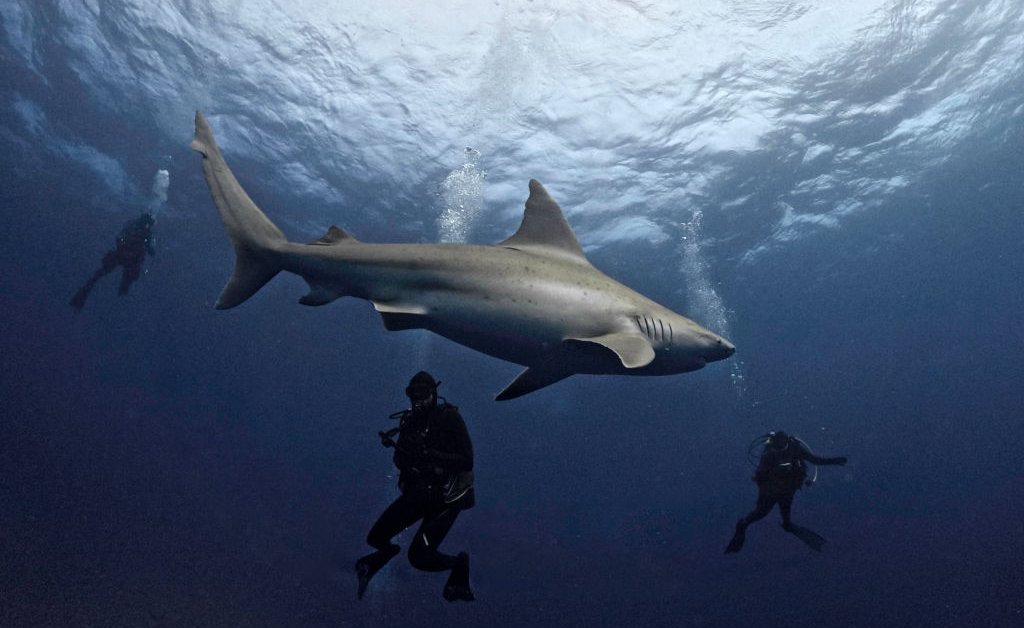The Jaws Effect: Long-Term Consequences For Shark Conservation Efforts

Welcome to your ultimate source for breaking news, trending updates, and in-depth stories from around the world. Whether it's politics, technology, entertainment, sports, or lifestyle, we bring you real-time updates that keep you informed and ahead of the curve.
Our team works tirelessly to ensure you never miss a moment. From the latest developments in global events to the most talked-about topics on social media, our news platform is designed to deliver accurate and timely information, all in one place.
Stay in the know and join thousands of readers who trust us for reliable, up-to-date content. Explore our expertly curated articles and dive deeper into the stories that matter to you. Visit Best Website now and be part of the conversation. Don't miss out on the headlines that shape our world!
Table of Contents
The Jaws Effect: Long-Term Consequences for Shark Conservation Efforts
The summer of 1975 saw the release of Steven Spielberg's blockbuster, Jaws. While the film captivated audiences worldwide and cemented its place in cinematic history, its legacy extends far beyond the box office. The "Jaws Effect," a term used to describe the widespread fear and misunderstanding of sharks spurred by the movie, has had profound and lasting consequences for shark conservation efforts, impacting public perception and hindering crucial conservation strategies for decades.
The Rise of Fear and Misinformation
Jaws depicted sharks as mindless, man-eating killing machines, a stark contrast to the reality of their crucial role in maintaining healthy ocean ecosystems. This portrayal fueled a global wave of shark hunts, driven by fear and a desire to "protect" beaches. The film's impact wasn't just immediate; it instilled a long-term phobia in many, contributing to a negative public perception of these magnificent creatures that persists even today.
This fear translated into harmful actions:
- Increased Shark Cullings: Many coastal communities, spurred by public panic, initiated large-scale shark culling programs, drastically reducing shark populations in numerous regions.
- Negative Media Portrayals: The film's influence permeated media representations of sharks for years, perpetuating the myth of the inherently dangerous predator. This hindered efforts to educate the public about their ecological importance.
- Undermining Conservation Initiatives: The negative public perception created by Jaws made it significantly more challenging to secure funding and public support for shark conservation initiatives.
The Long Shadow of Misconceptions
Decades later, the consequences of the Jaws Effect are still felt. While scientific understanding of sharks has advanced significantly, dispelling the myths perpetuated by the film remains an uphill battle. Many still harbor irrational fears, fueled by inaccurate media portrayals and a lack of reliable information.
This persistent fear has several detrimental effects:
- Continued Threats to Shark Populations: Many shark species remain critically endangered, facing threats from overfishing, habitat destruction, and bycatch. The legacy of Jaws makes it harder to garner support for protective measures.
- Limited Funding for Research and Conservation: Securing funding for crucial shark research and conservation programs is often hampered by the public's continued apprehension and lack of understanding.
- Difficulty in Implementing Effective Conservation Strategies: Public opposition and misunderstanding continue to hinder the implementation of effective shark conservation policies and regulations.
Moving Forward: Education and Awareness
Combating the long-term effects of the Jaws Effect requires a concerted effort to educate the public and correct misinformation. This involves:
- Promoting Accurate Scientific Information: Disseminating factual information about sharks through educational programs, documentaries, and public outreach initiatives is crucial.
- Highlighting the Ecological Importance of Sharks: Emphasizing the role sharks play in maintaining healthy ocean ecosystems is key to changing public perception.
- Supporting Responsible Shark Tourism: Promoting ethical and sustainable shark tourism practices can help foster positive interactions with these creatures.
- Advocating for Stronger Conservation Policies: Continued lobbying and advocacy for stronger international policies to protect shark populations is essential.
The legacy of Jaws serves as a cautionary tale, highlighting the powerful influence of media portrayals on public perception and conservation efforts. By actively promoting accurate information and fostering a greater understanding of sharks, we can hope to mitigate the long-term consequences of the Jaws Effect and ensure the survival of these vital ocean inhabitants. Learn more about shark conservation efforts at [link to a reputable conservation organization]. Your support can make a difference.

Thank you for visiting our website, your trusted source for the latest updates and in-depth coverage on The Jaws Effect: Long-Term Consequences For Shark Conservation Efforts. We're committed to keeping you informed with timely and accurate information to meet your curiosity and needs.
If you have any questions, suggestions, or feedback, we'd love to hear from you. Your insights are valuable to us and help us improve to serve you better. Feel free to reach out through our contact page.
Don't forget to bookmark our website and check back regularly for the latest headlines and trending topics. See you next time, and thank you for being part of our growing community!
Featured Posts
-
 Stock Market Slumps S And P 500 And Nasdaq Fall On Fed Rate Hike Fears And Iran Tensions
Jun 20, 2025
Stock Market Slumps S And P 500 And Nasdaq Fall On Fed Rate Hike Fears And Iran Tensions
Jun 20, 2025 -
 Yankees Playoff Chances In Jeopardy Deep Dive Into Recent Cold Streak And Judges Performance
Jun 20, 2025
Yankees Playoff Chances In Jeopardy Deep Dive Into Recent Cold Streak And Judges Performance
Jun 20, 2025 -
 Tulsi Gabbard Sidelined Trump Administrations Middle East Strategy And The Gabbard Factor
Jun 20, 2025
Tulsi Gabbard Sidelined Trump Administrations Middle East Strategy And The Gabbard Factor
Jun 20, 2025 -
 Understanding The Impact Of The New Law On South Carolina Electric Rates
Jun 20, 2025
Understanding The Impact Of The New Law On South Carolina Electric Rates
Jun 20, 2025 -
 Sc Governor Mc Masters Signature New Energy Law Takes Effect
Jun 20, 2025
Sc Governor Mc Masters Signature New Energy Law Takes Effect
Jun 20, 2025
